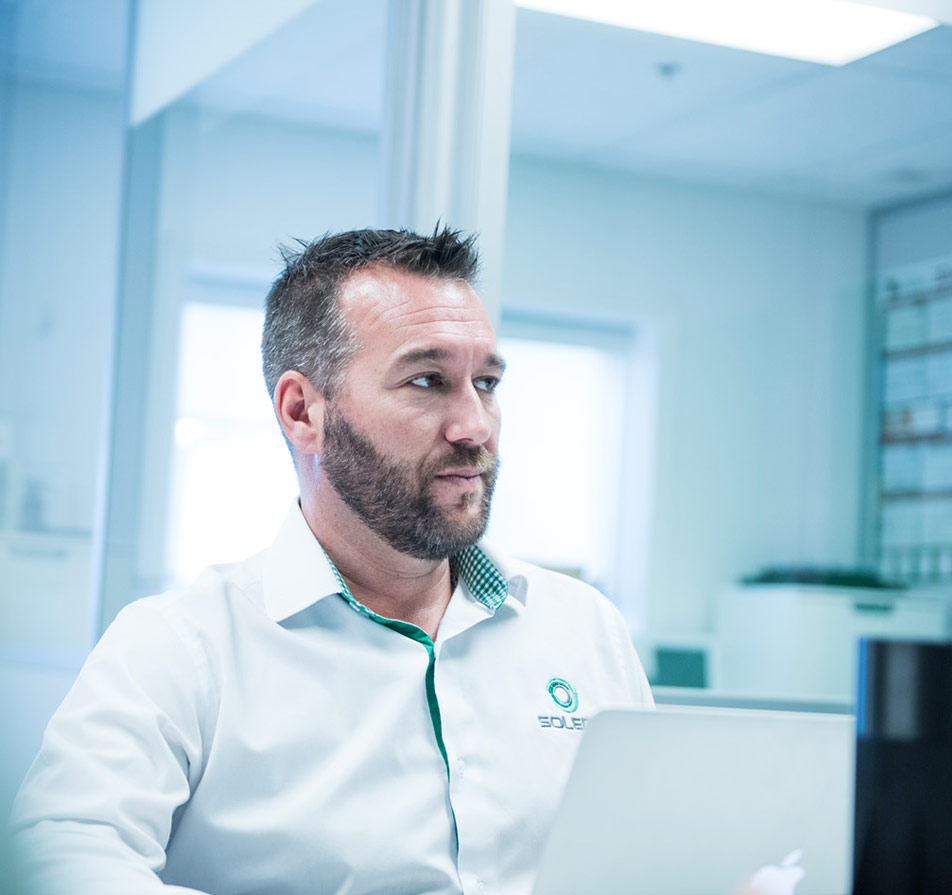
Question #1 – Mr. Hamel, we heard about the new requirements given by the MDDELCC towards the maintenance and required register obligations. Can you give us some precisions regarding this subject?
David Hamel – Everything started with the signing of the B. 12 section of the Formulaire de demande d’autorisation pour réaliser un projet assujetti à l’article 32 of the Environment Quality Act. When a project requires an authorization as a result of this article, the applicant, in his request, needs to demonstrate the compliance to a number of requirements regarding the management of stormwater. Regarding this same article, the manager that will become the owner of the installed treatment units needs to commit to maintain it and hold an exploitation and maintenance register.
Question #2 – Mr. Hamel, explain to us the important changes regarding the regulations that will impact the owner of the stormwater network?
David Hamel – Henceforth, in addition to the inspection, the maintenance, a sludge security deposit in a conform site and a certification confirming the optimal functioning of the device, are all required according to the article 12 of the Regulation respecting the application of the Environment Quality Act (Chapters Q-2, r.3). The owner of the treatment unit needs to commit to hold a register of the inspections and the maintenance of his equipment; a simple invoice being insufficient.
Question #3 – Mr. Hamel, is a PGO owner obliged to conform to this new regulation?
David Hamel – Yes, the legal framework has been in effect since February 2015 which the minister relies on and which gives in great detail all the penalties encountered by a device owner who does not meet all the requirements concerning the right stormwater management techniques. This refers to the article 14 of the Regulation respecting the application of the Environment Quality Act (Chapters Q-2, r.3) which clearly specify the sanctions applicable in case of non-compliance to the regulations.
Question #4 – Mr. Hamel, in what areas can Soleno Service help the owners of stormwater management networks?
David Hamel – Soleno Service was born out of the partnership between two companies specialized in their own separate domains; Soleno, a treatment unit producer, associated with Jallex, a pumping and cleaning service contractor. Jallex possesses the appropriate labour permits and the specialized material, in addition to doing sludge disposal. Hence, Soleno Service ensures the stormwater management network owners a turnkey service in order to meet the new regulations in place. Contrarily to other traditional pumping companies, Soleno Service detains the necessary expertise to offer this type of service; no need to contact separate companies.
Question #5 – Mr. Hamel, which are the solutions proposed by Soleno Service that sets their service apart towards this new regulation?
David Hamel – Contrarily to certain companies who do not offer an inspection, Soleno Service offers in addition to an inspection, the maintenance, the sludge disposal and the certification of the equipment, in conformity with the article 32 of the law in effect. Its services give the company the possibility to guaranty their performance regarding the installations and the maximization of their services’ lifespan. As well, Soleno Service now offers a treatment unit geolocalization service and a maintenance follow-up due to an electronic plate-form provided to them. Therefore, the stormwater management network owners can follow their equipment’s conformity state and consult their inspection reports.
Question #6 – Mr. Hamel, what is the regular maintenance frequency of a treatment unit?
David Hamel – Technically, twice a year, but the frequency is adjusted regarding the function of the site where it is installed and the contamination rate of it. Usually, the frequency is established after one full year of inspection and maintenance.
Question #7 – Who do we need to contact for more information?
David Hamel – Mr. Olivier Bouchard, ICI Sales Director at Soleno; 418.934.0470 or [email protected]